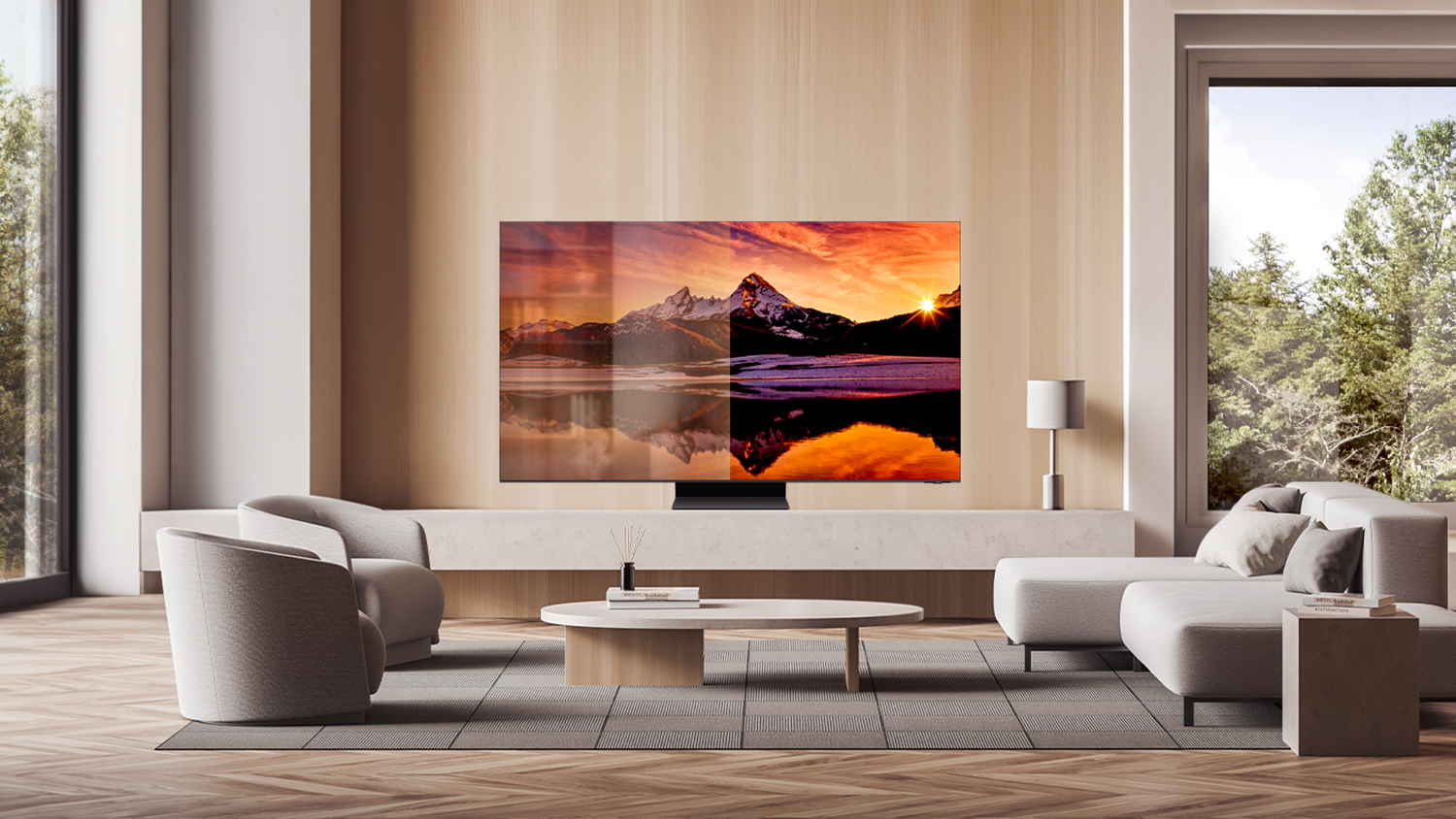
All of Samsung's 2025 TVs – "from the Crystal UHD series to the premium flagship Neo QLED 8K models" – will include Eclipsa Audio, in collaboration with Google, for adjustable three-dimensional sound. It's even YouTube-compatible, so creators will love using it for their content too. Think of it as Google's Dolby Atmos competitor.
We're on the cusp of CES 2025 – the world's largest consumer technology show – and the teaser announcements are already coming in thick and fast. Case in point: Samsung has just revealed a new audio upgrade for its 2025 TVs – without telling us (as yet) what those new-range tellies actually are.
Given the success of Samsung's S95D OLED last year, however, I've no doubt that the latest crop of screens will be contenders for the best TVs of the year – except this time with the added boost of Eclipse Audio, in collaboration with Google, to bring immersive audio tech to all its new panels.
It's not only the top-tier panels that'll get this new audio tech either, as Samsung's press release makes clear that it's "from the Crystal UHD series to the premium flagship Neo QLED 8K models" – encapsulating its more entry-level LED models through to the best 8K TVs that the year will bring.
So what exactly is Eclispa Audio and why does it matter? Think of it as Google's equivalent of Dolby Atmos – the go-to three-dimensional audio format of the moment – and that's the rough equation. Exactly how widely adopted or able to pick up other formats' immersive natures it'll be isn't yet clear – and something that CES 2025 will be able to shed more light on.
A big part of the package, however, is that it's YouTube-compatible, so content creators will be able to upload videos with Eclipsa Audio. No word on how the editing process works for this yet, or whether there'll be an automated (likely AI) version.
But Google is certainly stoked about its offering: We are excited to see how the creator community uses it to create new and innovative audio experiences," to quote Jim Bankoski, Vice President of Engineering, Google Chrome.
My question is: do we need yet another immersive audio format? There's confusion enough regarding Dolby Atmos, DTS:X, Apple's spatial audio, and other various audio-makers' efforts in headphone products, that adding Google to the pool will either muddy the waters or quickly see brands align with the new format to make it a new powerhouse. Time will tell...







